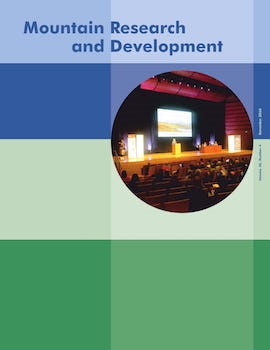The Global Network of Mountain Observatories (GNOMO) is an international initiative seeking to increase communication and collaboration and align methodologies to assess commonalities and differences across the world's mountain landscapes. Oriented toward sustainable mountain development, GNOMO requires the integration of social and natural sciences, as well as a diverse array of stakeholder perspectives. This paper highlights challenges associated with integrating social sciences because of the inherent paradigmatic differences within the social sciences. The value orientations of mountain researchers, as well as the divergent societal and institutional values regarding mountains, create a need for new approaches to observing mountain landscapes. A framework is presented to organize complex information about mountain social–ecological systems based on human conditions (from vulnerability to wellbeing), environmental actions (from degradation to stewardship), and environmental conditions that vary across time, space, and scales. A multiparadigmatic, multimethod approach is proposed to combine theory-driven quantitative indicators, qualitative perspectives from diverse knowledge standpoints, and critical inquiries into power relationships to fully represent dynamic mountain systems.
How to translate text using browser tools
1 November 2016
Framing the Human Dimensions of Mountain Systems: Integrating Social Science Paradigms for a Global Network of Mountain Observatories
Courtney G. Flint
environmental action
mountain observatories
paradigms
social science
Sustainable mountain development
vulnerability
wellbeing





